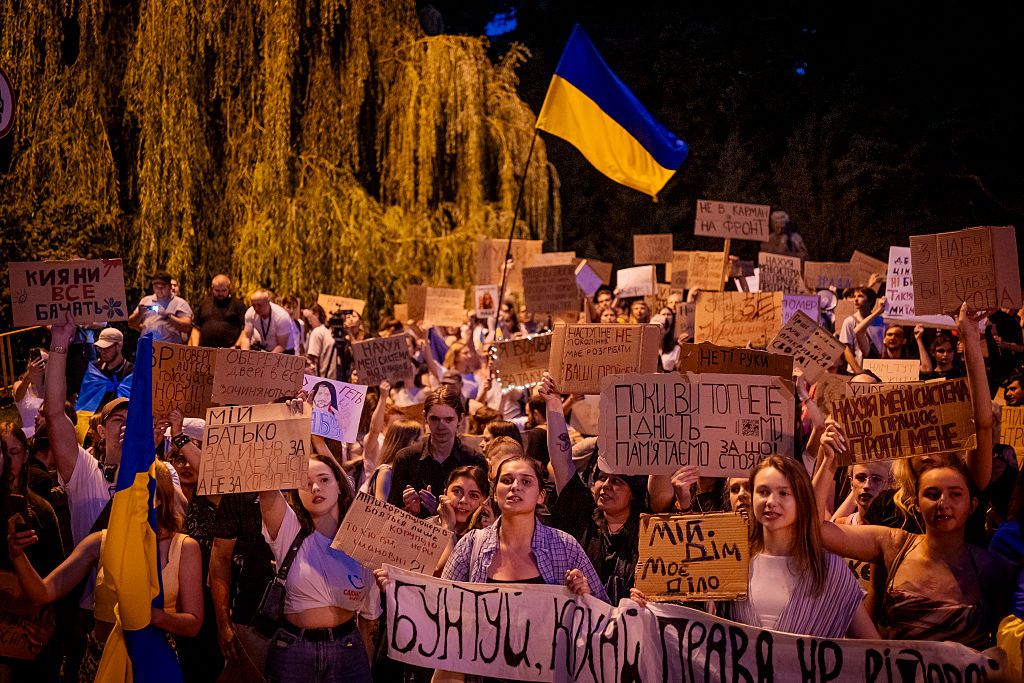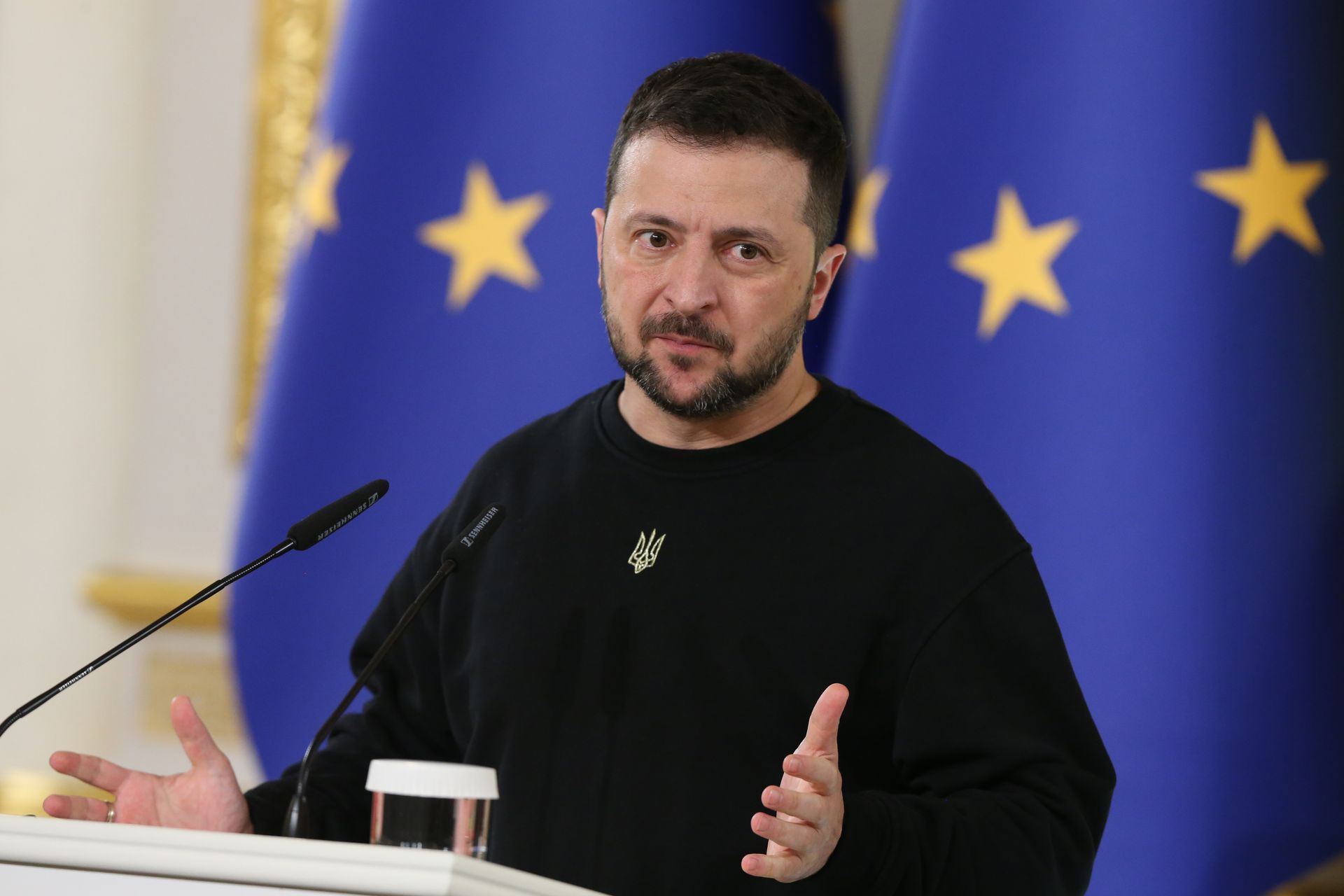Ukraine misses another chance to appoint economic crimes bureau head as IMF deadline looms, MP says

Ukraine's Cabinet of Ministers again refused to appoint anti-corruption investigator Oleksandr Tsyvinsky to lead the country's economic crimes bureau, a lawmaker told the Kyiv Independent.
The government did not raise the issue of Tsyvinsky’s appointment at its general meeting on July 30, despite the International Monetary Fund's looming deadline to elect a director for the bureau by July 31, opposition lawmaker Yaroslav Zhelezniak from the Holos Party said.
Kyiv has been accused of unlawful decision-making after it overturned a selection committee’s decision to pick Tsyvinsky as head on July 8. After the government last week moved to undermine the independence of anti-graft agencies, it is now facing mounting pressure from partners to uphold its commitments to anti-corruption efforts.
The committee selected Tsyvinsky on June 30, and according to the law creating the bureau, the government had 10 days to appoint the candidate put forward by the commission, citing alleged Russian ties.
"They have to appoint the head of the Bureau of Economic Security — they once again breached this law and have not raised this issue and have not appointed (Tsyvinsky)," Zhelezniak told the Kyiv Independent.
The selection committee said during a press briefing on July 30 that it would not hold another competition and called for the appointment of Tsyvinsky, who beat out 16 finalists. The committee consists of six members, including three international experts who have the final say on the appointment.
The Cabinet of Ministers originally rejected Tsyvinsky's candidacy, citing security concerns after the Security Service (SBU) noted Tsyvinsky’s estranged father has Russian citizenship, despite the information having long been known.
Transparency and anti-corruption groups say Tsyvinsky’s candidacy was rejected not for security reasons, but because President Volodymyr Zelensky's Office views him as too independent.
"I was really shocked by the extent to which attempts were made to influence our decisions — the use of the Secret Service to influence this election seems not only unacceptable but also dangerous," international committee member Donatas Malaskevicius said at the briefing.
James Wasserstrom, another committee member from the U.S. and a seasoned anti-corruption expert, said that the government’s failure to carry out the law is "illegal" and of "concern" for international partners.
None of the committee voiced the citizenship of Tsyvinsky’s father as a concern, particularly as Tsyvinsky holds clearance for state secrets, passed special vetting, and is currently a detective unit head at Ukraine's National Anti-Corruption Bureau (NABU). The committee has returned Tsyvinsky’s candidacy to the Cabinet of Ministers several times, but has no other options to influence the government's decision.
"The law is very clear. There's no room to maneuver. The ball was and remains entirely in (the government’s) court, and they remain outside the law," Wasserstrom said.
While it’s not clear if the government will adhere to the committee's decision, it is under pressure from its biggest partners to do so. The European Commission stressed that Ukraine needs to appoint the nominated director "swiftly," an EC spokesperson told the Kyiv Independent on July 29.
Business leaders have also publicly commented on the controversy, such as the American Chamber of Commerce in Ukraine, which represents nearly 700 U.S. and international investors and corporate members. The organization said it "looks forward to the proper implementation" of the bureau reform and ensuring the independence of NABU and SAPO.
"Companies believe in Ukraine and are ready to invest, operate, and grow, but they need assurance that justice is fair, institutions are independent, and the legal framework is predictable," the ACC wrote in a public statement on July 22.
Over 60 Ukrainian civil society and business groups wrote in a July 18 called on to newly appointed Prime Minister Yuliia Svyrydenko to "appoint Tsyvinsky as head of the Economic Security Bureau and start a real reboot of the body that the whole country is waiting for."
The IMF originally set a February 2025 deadline for the appointment, but extended it to the end of July after Kyiv missed the initial benchmark.
Reforming the bureau — which was created in 2021 to investigate economic crimes — is a critical component of Ukraine's broader commitments to both the IMF and the European Union.
The bureau has long faced accusations of corruption and political meddling. Tsyvinsky's selection was seen by many as an opportunity to reset the agency's tarnished reputation and align its leadership with EU-backed reforms.















